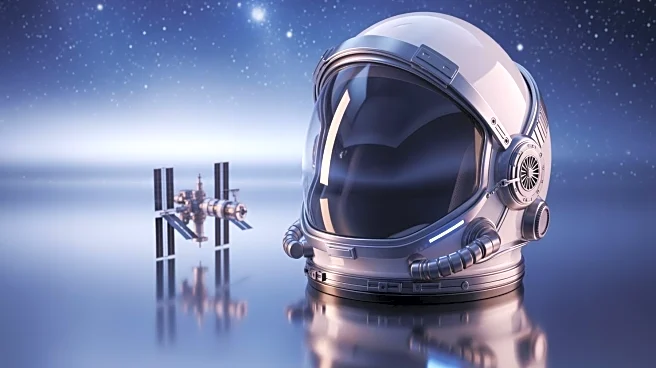What's Happening?
China has revealed the crew for its upcoming Shenzhou 21 mission to the Tiangong space station, scheduled to launch on October 31. The mission will be commanded by Zhang Lu, who previously participated
in the Shenzhou 15 mission. Joining him are astronauts Wu Fei and Zhang Hongzhang, both from China's third batch of astronauts selected in 2020. Wu Fei, at 32 years old, is the youngest member of China's astronaut corps. The crew will conduct various scientific experiments, spacewalks, and educational activities during their six-month stay aboard the space station. Additionally, the mission will include four black mice to study reproduction in low Earth orbit.
Why It's Important?
The Shenzhou 21 mission marks a significant step in China's expanding space exploration efforts, showcasing its commitment to advancing its aerospace capabilities. The inclusion of the youngest astronaut highlights the country's focus on nurturing new talent in the field. The mission's scientific experiments, particularly those involving small mammals, could provide valuable insights into biological processes in space, potentially influencing future space missions and research. This development underscores China's growing influence in the global space race, with implications for international collaboration and competition in space exploration.
What's Next?
Following the launch, the crew will spend approximately six months aboard the Tiangong space station, conducting experiments and overseeing cargo operations. Their activities will contribute to China's long-term goals of establishing a sustainable presence in space. The success of this mission could pave the way for future collaborations and advancements in space technology. Observers will be watching closely to see how China leverages the data and experiences gained from this mission to further its space exploration ambitions.
Beyond the Headlines
The Shenzhou 21 mission reflects broader geopolitical dynamics, as China continues to assert its presence in space exploration. The mission's focus on scientific research and international outreach may influence global perceptions of China's space program. Additionally, the involvement of young astronauts like Wu Fei could inspire a new generation of space enthusiasts and professionals, potentially shaping the future of the aerospace industry.











